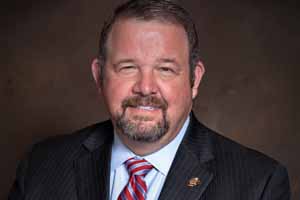By Bradford Holland, MD, and Amy Townsend, MD
 The term “provider” in health care is a bureaucratic term that originated in government and insurance sectors.
The term “provider” in health care is a bureaucratic term that originated in government and insurance sectors.
Medicare was created in 1965 and began using “provider” for entities qualified to receive Medicare payment. Over the years, the term has expanded to include an ever-increasing milieu of people who work in all facets of health care. The term “provider” has become so commonplace, the average physician will see or hear it countless times a day. Meanwhile, being addressed as “physician” or “Dear Doctor” is becoming increasingly rare. Some young physicians even refer to themselves and their colleagues as “providers” instead of physicians or doctors. They do not realize the word undermines their profession by devaluing their specialized education and training.
Many professional organizations – including the American Medical Association,1 American Academy of Family Physicians,2 American Academy of Pediatrics,3 American College of Physicians,4 American Psychiatric Association,5 American Academy of Emergency Medicine,6 and Texas Medical Association7 – have created position statements or policies recommending against using the term “provider” in official communications when referring to physicians. A recent poll of TMA’s House of Delegates found that 98% favored being called a “physician” rather than a “provider.”8 TMA also has an official communications policy that calls for us to refrain, whenever possible, from using the term “provider.” Despite these efforts, the label is becoming more pervasive, not less. Texas physicians have overwhelmingly voiced requests to eliminate the use of the term “provider.” However, the larger health care community has not honored our polite requests. It is now time to put our foot down and say, “Hey Texas, it really is time to stop using the word “provider!”
There is no denying that our country is currently struggling with rapidly evolving terminology in health care. As different groups, like the American Academy of PAs,9 seek to rename themselves entirely, and as traditional physician training descriptors, like “residency” and “fellowship,” are appropriated by nonphysicians, it is becoming very apparent that words really do matter. Taking a stand on phraseology is not a frivolous endeavor but an important aspect of defining who we are, as physicians, and the nature of the sacred physician-patient relationship. While nonphysicians are fighting for the title “doctor,” physicians who have earned the designation through more than a decade of education are being shamed into avoiding its use. Any physician daring to highlight his or her credentials is labeled as “egocentric,” “elitist,” or “self-important.” The perversity of this is utterly astounding.
 Language is, in fact, a very powerful tool. The words we use not only allow us to communicate, but are also a way to influence thought, change culture, and ultimately to control people. The medical-industrial complex – consisting of government, corporate medicine, and insurance companies – stands to greatly benefit politically and financially by controlling the language in health care and denying physicians their rightful place at the head of the health care team by minimizing physicians’ expertise and, therefore, influence on the system. We must think about our word choices. If we relinquish control of our language, we will lose control of our profession.
Language is, in fact, a very powerful tool. The words we use not only allow us to communicate, but are also a way to influence thought, change culture, and ultimately to control people. The medical-industrial complex – consisting of government, corporate medicine, and insurance companies – stands to greatly benefit politically and financially by controlling the language in health care and denying physicians their rightful place at the head of the health care team by minimizing physicians’ expertise and, therefore, influence on the system. We must think about our word choices. If we relinquish control of our language, we will lose control of our profession.
As part of a nationwide effort to spur hospital administrators, government entities, and the insurance industry into expunging the term “provider,” JAMA published a well-written article that explains the history of the term and makes a great argument for eschewing “provider” in order to promote trust and morale in medicine, and to encourage specificity and transparency.10 Contained therein is also a nationwide call to arms. We, the physicians of Texas, are answering this call to say that the time has come to once again take back medicine and regain full use of the title “physician.”
To that end, when any physician across our great state needs to make the argument against the term “provider,” we believe these are the salient points that should be made:
- “Provider” is a term that is a nonspecific, nondescript term that confers little meaning. It obscures the 15,000-plus hour training difference that exists between physicians and nonphysicians, a fact that should be of great material consequence to patients. The ultimate effect of the term is to create confusion among individuals seeking care. The implication is that “providers” are interchangeable and patients can expect to receive the same care from any “provider.” Use of the term is especially inappropriate if it is employed as a tactic to confuse and thereby encourage use of health care professionals of lesser cost to the company or insurer. If everyone can call themselves a health care provider - including chiropractors, naturopaths, and herbalists – it is easy to foresee every patient’s possible confusion and deception if nonmedical professions are included in even the simplest phrase, “See your health care provider.”
- The term “provider” implies the relationship between patient and physician is a commercial transaction and reflects what seems to be an increasing commoditization of medicine and health care. It makes no reference to professional values or professionalism. It gives the illusion that health care is fundamentally a pre-packaged commodity that is “provided” to a consumer. But health care is not a commodity, and neither are physicians. The practice of medicine has always had a sacred bond between physician and patient, therefore we should not let that relationship be defined by the same term used for cable companies and cell phone service “providers.” We mean more to patients than merely being providers; we are healers.
- While “health care provider” is used to be politically correct and inclusive, even nonphysician clinicians like physician assistants11 and nurse practitioners12 dislike the term. Those who use “provider” to be maximally inclusive should be made aware of the fact that the term is nearly universally offensive and degrades the value of each individual profession’s true value and unique place in our health care system.
- Many physicians are offended when they are called “provider” because it strips them of their level of training, their individual role in the medical setting, and their unique purpose. This can cause lower job satisfaction, lower self-esteem and motivation, and physician burnout. If we are serious about fighting physician burnout, our profession needs to shun the term “provider.”
- As we push to move more towards increasing transparency in our health care system – like requiring ID badges to identify the credentialing and specific training of various health care professionals – use of the ambiguous term “provider” seems to be a step backwards.
- If a person without any previous health encounters comes in for a single clinic visit, have they been “provided health care?” In reality, while insurance companies and health systems may be “health care providers,” what an individual physician does to treat a patient in the clinic or in the operating room is not “providing them health care,” and therefore the term is a complete misnomer.
The growing unwillingness to highlight the differences in training, education, and expertise between physicians and other health care professionals constitutes an increasing danger to not only our profession but also to patients, our health care system, and society as a whole. Patients deserve to know who is rendering their care. It is our hope that every physician reading this article will think and act in some way to speak up against the “provider” label and help reclaim the rightful title. Our profession is thousands of years old, so let’s not be the generation that destroys its own name. For the sake of those who follow in our footsteps, let’s take a stand together today.
REFERENCES
- https://policysearch.ama-assn.org/policyfinder/detail/term%2provider?uri=%2FAMADoc%2FHOD.xml-0-3588.xml
- https://www.aafp.org/about/policies/all/provider.html
- https://collaborate.aap.org/alf/Documents/Calling%20Pediatricians%2%E2%80%9CDoctors%E2%80%9D%20Instead%20of%20%E2%80%9CProviders%E2%80%9D.pdf.
- https://acpinternist.org/archives/2019/09/defining-our-identity-does-not-include-the-p-word.htm
- file:///Users/amytownsend/Downloads/Position-Client-Provider.pdf
- https://www.aaem.org/resources/statements/position/term-provider
- https://www.texmed.org/Template.aspx?id=43248
- Electronic Vote, Texas Medical Association House of Delegates, Friday May 14, 2021.
- https://www.aapa.org/news-central/2021/05/aapa-house-of-delegates-votes-to-change-profession-title-to-physician-associate/
- Beasley, JW; Roberts, RG; Goroll, AH. Promoting Trust and Morale by Changing How the Word Provider is Used. JAMA. Published online May 28, 2021. doi:10.1001/jama.2021.6046.
- https://www.aapa.org/wp-content/uploads/2018/12/How_to_Talk_about_PAs_FINAL_December_2018.pdf
- American Association of Nurse Practitioners. Use of terms such as mid-level provider and physician extender. Published 2009. Updated 2015. Accessed June 14, 2021. https://www.aanp.org/advocacy/advocacy-resource/position-statements/use-of-terms-such-as-mid-level-provider-and-physician-extender.
Tex Med. 2021;117(8):4-6
August 2021 Texas Medicine Contents
Texas Medicine Main Page